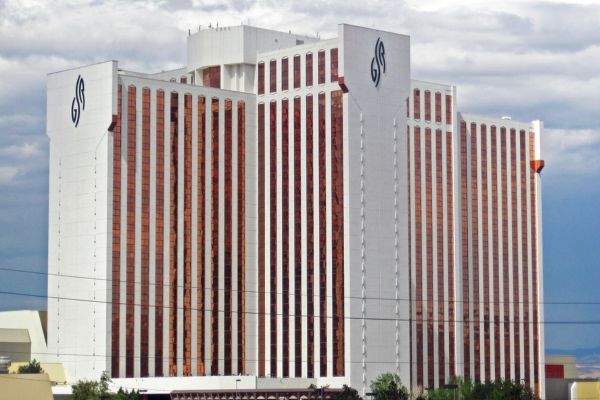
- Details
- By Darren Thompson
Jimmy-John Thompson, who lives in Sacramento, Calif., filed a lawsuit in Nevada state court last month against the Grand Sierra Resort and Casino in Reno, Nev., alleging that the popular Reno attraction discriminated against him because he was Native American.
According to the lawsuit, on Oct. 15, 2022, Thompson was a guest at the Grand Sierra Resort and Casino when he noticed the smell of smoke coming from the air vent in his hotel room and called the front desk to report a potential fire. The front desk dispatched hotel staff to check Thompson’s room and reported they could not find a source of smoke. The hotel then changed Thompson’s room.
Because Thompson was concerned about the smoke, he then called the Reno Fire Department to report a potential fire on the property. The fire department investigated and eventually cleared the property of any potential fire, saying to Thompson that the source of the fire had been extinguished.
The lawsuit asserts the hotel dispatched two security guards to Thompson’s new hotel room and demanded he leave the property. They allegedly also accused him of committing arson in his former hotel room, claiming they had evidence against him according to court documents.
“Jimmy-John Thompson was treated so poorly at the Grand Sierra Resort and Casino with no rational basis for the treatment he received,” Norberto J. Cisneros, legal representation for plaintiff Jimmy-John Thompson, told Native News Online. “Reporting a potential fire, resorted to him being accused of arson, and then being evicted from the hotel at 4 a.m., having to sleep in his car, with no opportunity to explain or refute himself for trying to save lives.”
If he was not a Native American, if this was a person not of color, he would have never experienced this kind of treatment. It’s embarrassing and can harm a person’s reputation.”
Because Thompson was denied the ability to enjoy the services of a public accommodation while others were able to do so, the suit alleges the Grand Sierra Resort and Casino violated his civil rights by discriminating against him. His attorney is asking for $15,000 for damages.
Since the incident, Cisneros says he has sent two separate demand letters to the Grand Sierra Resort and Casino asking for the organization to acknowledge the treatment of Thompson. “We have heard nothing from them,” he said. “I’ve never seen anything like this in my career.”
Thompson also has deep vein thrombosis (“DVT”) and takes medication to treat his condition. A side effect of his medication can cause a person to have involuntary convulsions if exposed to colder temperatures. As a result of being evicted from his hotel room at 4 a.m., he was forced to sleep in his vehicle, which caused him several convulsions, the suit says.
Thompson was attending the Western Mining Action Network’s conference when he was escorted out by security guards. His purpose in attending the conference was to make a field visit near the Thacker Pass Lithium mine, a project highly contested by tribes in the region. Because he was unable to rest, he missed the field visit to Thacker Pass.
“I was guilty out of the gate,” Thompson told Native News Online. “They didn’t want to hear anything from me.”
More Stories Like This
Native News Weekly (August 25, 2024): D.C. BriefsNavajo Nation Mourns the Passing of Former Vice President Rex Lee Jim
Deb Haaland Earns Endorsement From Communications Workers of America Local 7076
University Soccer Standout Leads by Example
Two Native Americans Named to Democratic Congressional Campaign Committee's“Red to Blue” Program
Help us defend tribal sovereignty.
At Native News Online, our mission is rooted in telling the stories that strengthen sovereignty and uplift Indigenous voices — not just at year’s end, but every single day.
Because of your generosity last year, we were able to keep our reporters on the ground in tribal communities, at national gatherings and in the halls of Congress — covering the issues that matter most to Indian Country: sovereignty, culture, education, health and economic opportunity.
That support sustained us through a tough year in 2025. Now, as we look to the year ahead, we need your help right now to ensure warrior journalism remains strong — reporting that defends tribal sovereignty, amplifies Native truth, and holds power accountable.
 The stakes couldn't be higher. Your support keeps Native voices heard, Native stories told and Native sovereignty defended.
The stakes couldn't be higher. Your support keeps Native voices heard, Native stories told and Native sovereignty defended.
Stand with Warrior Journalism today.
Levi Rickert (Potawatomi), Editor & Publisher

